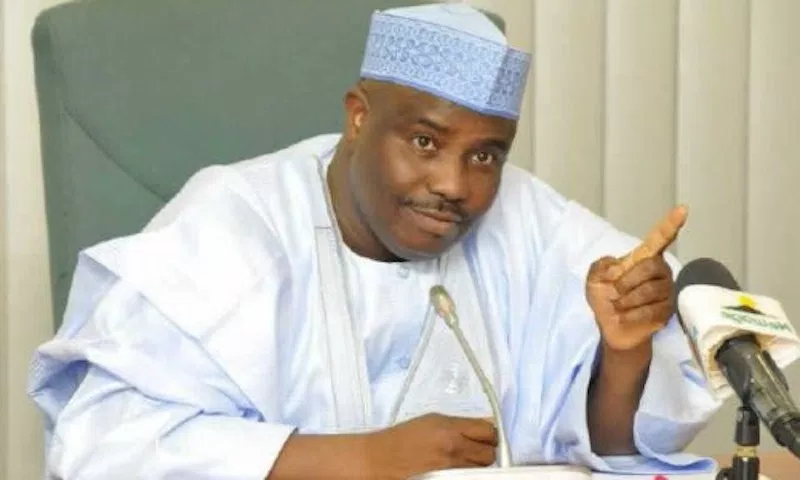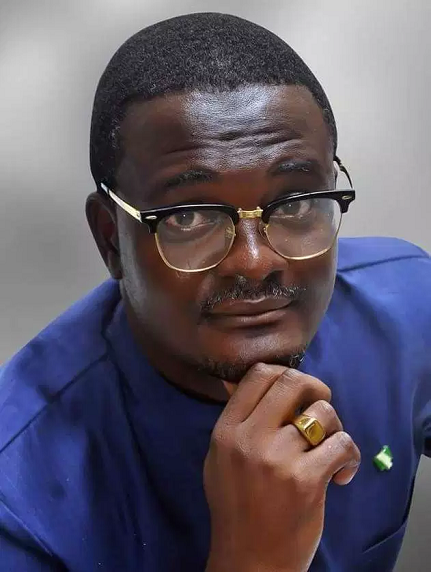COVID-19: An unseen enemy in a war without weapons
Apart from the recent outbreaks of the H1N1 swine epidemic of 2009 to 2010, the West African Ebola outbreak of 2014 to 2015 and Zika virus (South America and Central America) of 2015, all of which are to some extent localised and of less magnitude, there had not been any outbreak that turned into a pandemic like the coronavirus in a century.

The last of such pandemic was the Spanish flu of the early 20th century, which infected about 500 million people and claimed close to 50 million people from the South Seas to the North Pole in two years (1918 to 1920), even as the pandemic was made worse by the cramped condition of soldiers and the general poor war time nutrition during World War I. During the Spanish flu, Nigeria also lost 199,325 people, with Kano having 57,978 casualties and Ogoja, 62,832 deaths, according to the Public Health Record of September 5, 1919.
READ ALSO: ACF commends Kwara, foundation efforts in cirtailing COVID-19
Despite the fact that epidemics, pandemics and plagues are as old as human existence, we actually thought that with technological innovations and advancement in sciences, we had seen the last of such deaths on the scale and magnitude we are now witnessing with COVID-19. How wrong! Coronavirus and the disease it causes, known as COVID-19, have proved that, from time to time, man’s vulnerability and science’s limitation will be tested.
That test is ongoing as deaths through COVID-19 continue to rise all over the world: So far 238 people have been infected in Nigeria, with five persons dead and 33 fully recovered. Globally, 1,360,661 have been affected by the virus and 75,940 have so far died, while 298,138 people have recovered. The disease has once more challenged scientists, especially in technologically advanced countries, to retreat to laboratories in search of an elixir.
In this battle against the unseen enemy, there is a terrifying spectre in the horizon, akin to only a physical war situation. No doubt, war creates fear, anxiety and uncertainty, but unlike the conventional war in which all sorts of weapons, including bombs, are utilised, this particular war is about the fear of contracting COVID-19 and the loss of loved ones, which is already happening, just like during conventional wars, with the difference being that this time the powerful and mighty are not spared this time; it is an equal opportunity devastation. In this war, everyone is a potential victim, as attested to by the hospitalisation of the British prime minister and some world leaders, including celebrities who have tested positive. Which conventional war would have affected our all-powerful chief of staff, Abba Kyari, some governors and the son of a very rich man like Atiku Abubakar. In this war, money cannot guarantee personal safety.
There is real fear of the loss of jobs and starvation if the pandemic lingers for long, especially among the populace who live on daily incomes from menial jobs, which are no longer available due to the lockdown.
The sunny side of it all is that Boko Haram killings, kidnapping and banditry have equally reduced. Who will they kidnap anyway, when the roads are almost empty. This state of affairs could have only been wrought by COVID-19, the ultimate leveller of the arrogant human species, the powerful, those who have the instruments of coercion, the gun wielders, the strong, the tough ones and the weak. All the war heads, arsenals, nuclear or technological or biological weapons, long and short range missiles accumulated by world powers over time, are incapable of flattening the curve of the disease; we all have to resort to physical and social distancing as scientists and ordinary folks are shocked at their helplessness. So, while COVID-19 ravages humanity and decimates populations, we need to ponder about so many issues: How is it that all these nuclear war heads accumulated over the years, and costing billions of dollars are not useful and incapable of stopping the human misery that is COVID-19?
Meanwhile, even as the world awaits the worse to happen in Nigeria, and Africa, the federal and state governments have put measures in place — isolation centres and palliatives. Now, everybody is talking health, health and health. An unprecedented attention is now focused on health, a hitherto neglected sector, which had always given the affluent among us the excuse to jet out of the country. Whether we like it or not, we now have to salvage the Nigerian health sector, just as the minister of Finance talked about investment in healthcare facilities.
However, one thing is to make a policy statement, and it is another thing to carry it out to the letter. So, how are we faring with some of these measures? In the city centre of Abuja, the stay at home order is largely in force, but at precincts, where there are massive concentrations of people, residents mill around freely. There are even traffic snarls at some places any time from 6 p.m., while those who should enforce the lockdown take bribes to allow people move around. Many had run shot of perishable food and goods, and so had to come out to restock. I learnt that there is virtually no restrictions in places like Kano and the North-East axis. The news of COVID-19 and its devastation is yet to dawn on the people there, or so it seems, due to the free movement still in place. Thankfully, with the exception of Kaduna and Bauchi, these nonchalant States are yet to record or report any infection.
But by far, the major issue for Nigerians is the ongoing discussion between the federal government and the National Assembly (NASS) about the N500 billion COVID-19 crisis intervention fund. The minister of Finance, Zainab Ahmed had already met with the leadership of the NASS to discuss the proposal and modalities for the intervention fund. According to her, the fund will “involve mopping up resources from various special accounts that the government maintains to be able to pull this N500 billion” together, and also through loans from multilateral institutions and expected grants. “The crisis intervention fund is to be utilised to upgrade healthcare facilities, among other things”. Nigeria, according to reports, is set to borrow $7 billion from the International Monetary Fund (IMF), the World Bank and others.
In an oil dependent mono-economy, which now sees a barrel of oil selling below $30 in the international markets, the least that any government can do is to take loans from wherever these are possible. However, debt is a death trap, and we should be cautious in embarking on a borrowing spree at this time.
The president has also directed that $150 million be withdrawn from the Sovereign Wealth Fund to be shared among federal, state and local governments. This might be a good move in view of dwindling revenues from crude oil and reduction in federal allocations to states. But without proper checks and balances, frameworks and guidelines for its expenditure, the COVID-19 fund for the three tiers of government will go down the drain, just like the bailout funds, whose benefits, if any, cannot be sighted anywhere, including personnel emoluments such as salaries and pension payment, did, since people are still owed in states across the country.
We do hope that excessive loans will not further burden and pauperise Nigerians if we survive the COVID-19 pandemic. It is common knowledge that 33 out of the 36 states of the federation are not sustainable and the costs of governance are ballooning; yet, we are talking about taking more loans. Besides, this sends the wrong signal that it took a global pandemic for the Nigerian government to think of improving healthcare facilities. With a debt overhang, it is also inconceivable that government will think of another loan at a time of global economic meltdown. Let us also think through all these loans and not mortgage the future of the next generation just because a pandemic once occurred.








